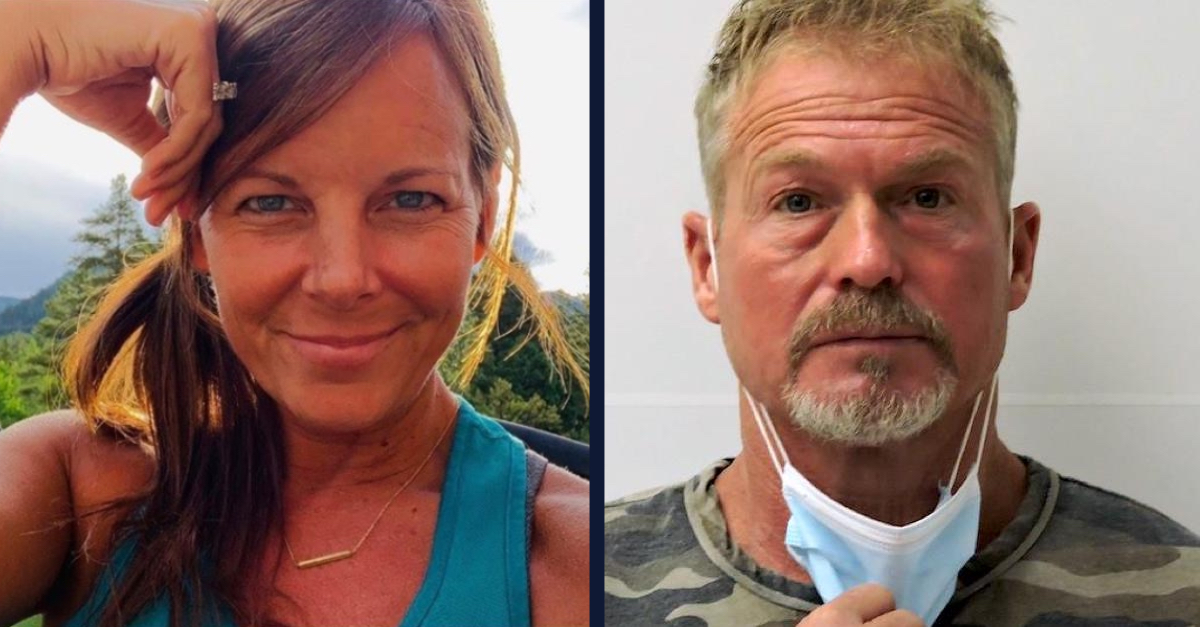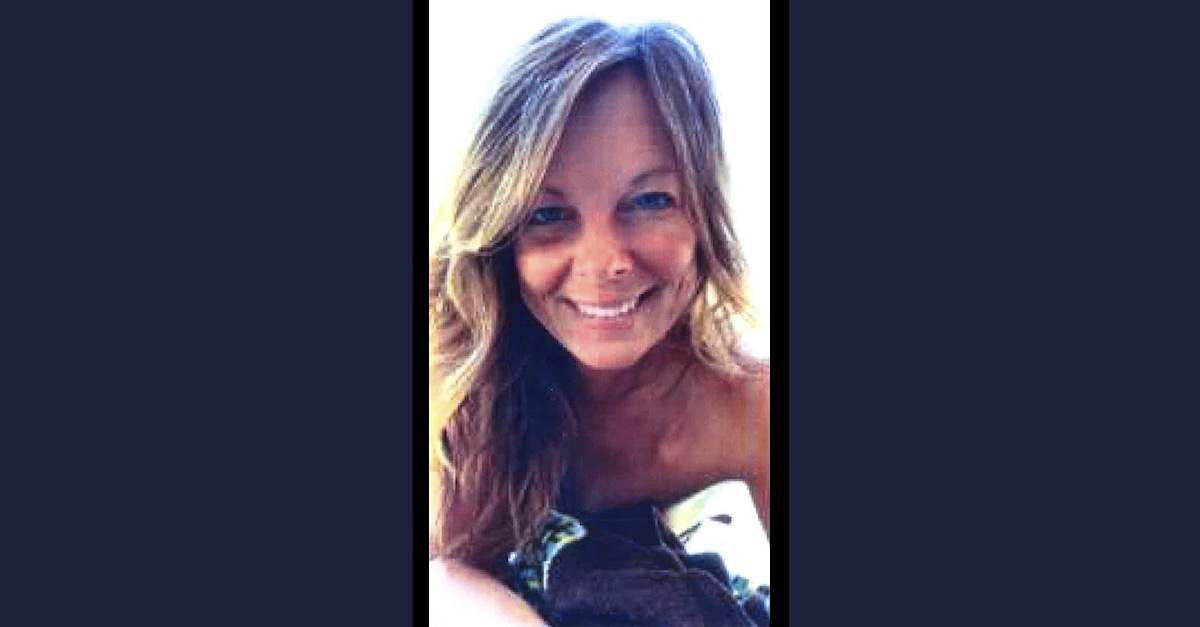
Suzanne Morphew and Barry Morphew appear in images distributed by the Chaffee County, Colo. Sheriff’s Office.
A Colorado man previously charged with murder now admits he submitted a forged ballot under his missing wife’s name so Donald Trump would win the 2020 election. Barry Morphew pleaded guilty Thursday to the ballot matter — a charge of forgery involving a government-issued document — according to multiple local and national reports.
Prosecutors in April dropped murder charges against Morphew that were once connected to the presumed death of his missing wife Suzanne Morphew. Suzanne disappeared on May 10, 2020.
The Chaffee County election case remained active, however.
Denver ABC affiliate KMGH reported that the charge to which Morphew pleaded guilty is a Class 5 felony. A one-year sentence was deferred, the television station said; rather, “Morphew will have to do 32 hours of community service and will be on supervised probation,” KMGH indicated.
The contemplated one-year jail term will disappear assuming Morphew’s successful completion of the community service and probation requirements, KMGH noted.
As Law&Crime previously reported, Suzanne Morphew’s ballot allegedly did not feature her signature, but it did list her husband as a witness. Barry Morphew allegedly told FBI agents on April 22, 2021 that he submitted a ballot in Suzanne’s name “just because I wanted Trump to win.”
A voluminous affidavit filed in state court and obtained by Law&Crime described the relevant conversation this way:
Barry admitted to submitting a ballot on Suzanne’s behalf for the Presidential election, saying, “Yeah, just because I wanted Trump to win.” He said, “I figured all these other guys were cheatin’ — I knew she was gonna vote for Trump anyway.”
S[pecial] A[gent] [Jonathan] Grusing informed Barry that was not legal and Barry said, “I didn’t know you couldn’t submit it for your spouse.”
The lack of a signature for Suzanne Morphew led local election officials to become suspicious, Denver NBC affiliate KUSA reported when the case commenced. Election officials sent a letter to clear up the matter pursuant to state law, but the letter was never answered or returned. Therefore, the election officials called the sheriff, and the case unraveled from there.
Plea talks surrounding the ballot charge were in the works for at least several weeks, according to an early July report from a collection of Salida, Colorado radio stations.
Ten days after Barry Morphew discussed voting under his wife’s name with the FBI, Colorado authorities charged him with murdering Suzanne in a homicide case that has since been officially dropped.

A prosecution evidence photo (exhibit 59) portrays an image of Suzanne Morphew dated May 9, 2020, at 2:03 p.m. It is alleged to be the last known photo of Suzanne Morphew alive.
Prosecutors asked earlier this year to toss the murder case without prejudice but hinted the charges could theoretically be re-filed at some point in the future. Authorities claimed to be waiting for mountain snows to recede before commencing a renewed search for Suzanne’s possible remains. Those promised efforts have not publicly borne any fruit to date.
The state’s decision to stand down on the murder case came after Judge Ramsey Lama slammed the prosecution over what Lama called an “obvious and egregious violation” of one discovery protocol and several other lesser violations. Those violations resulted in Lama’s decision to limit the state’s ability to present expert testimony during a swiftly approaching but ultimately cancelled murder trial. Without the necessary expert testimony, prosecutors did not feel comfortable moving forward; they jettisoned the murder case just nine days before jury selection was scheduled to begin.
Barry Morphew spoke to ABC News with his daughters by his side after prosecutors rubbished the murder case.
“I just love my girls, and I love my wife,” he said. “And I just want her to be found.”